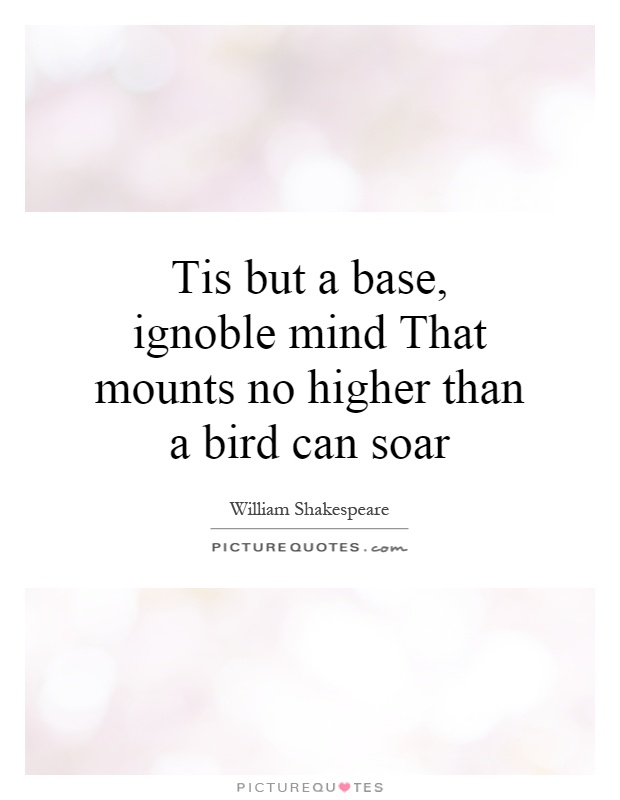Tis but a base, ignoble mind That mounts no higher than a bird can soar

Tis but a base, ignoble mind That mounts no higher than a bird can soar
In the world of William Shakespeare, the idea of ambition and the pursuit of greatness is a recurring theme in many of his works. The quote “Tis but a base, ignoble mind That mounts no higher than a bird can soar” speaks to the idea that those who do not strive for greatness are limited by their own lack of ambition and vision.Shakespeare often portrayed characters who were driven by their desire for power, wealth, and status. These characters were willing to do whatever it took to achieve their goals, even if it meant betraying others or resorting to violence. In contrast, characters who were content to remain in their current station in life were often portrayed as weak, cowardly, and ultimately doomed to failure.
The quote can be interpreted as a criticism of those who are content to live a life of mediocrity and who lack the courage and ambition to pursue their dreams. In Shakespeare’s plays, characters who are driven by their desire for greatness are often portrayed as heroic and noble, while those who are content to remain in their current circumstances are seen as weak and unworthy.
One of the most famous examples of a character who embodies the idea of ambition and the pursuit of greatness is Macbeth. In Shakespeare’s play, Macbeth is a nobleman who is consumed by his desire for power and who is willing to do whatever it takes to achieve his goals. However, his ambition ultimately leads to his downfall, as he becomes consumed by guilt and paranoia.












 Friendship Quotes
Friendship Quotes Love Quotes
Love Quotes Life Quotes
Life Quotes Funny Quotes
Funny Quotes Motivational Quotes
Motivational Quotes Inspirational Quotes
Inspirational Quotes